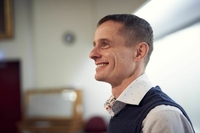Childhood Development and Learning Difficulties
There's so much to learn about how young Kiwis learn
Why is it a problem?
Why is it a problem?
What is childhood development?
Childhood development is simply the process by which a child changes over time. In broad terms, it can cover the time between conception and an individual becoming a fully functioning adult. Another way to describe this process is the change from total dependence to full independence.
What are the main areas of childhood development?
Although there are many differences in definition and terminology, it is generally accepted that childhood development includes:
• basic motor skills, e.g. example crawling, jumping or running
• fine (more complicated) motor skills, e.g. writing and drawing
• speech and language
• cognitive and intellectual skills, e.g. counting or identifying shapes
• social and emotional skills, e.g. playing with other children.
So what is ‘normal’ vs ‘delayed’ development’?
Because most children reach specific developmental milestones at around similar ages, this is often called ‘normal development’. It doesn’t mean all children will reach the main areas of development at exactly the same age. A child whose skills and abilities in one or more areas are delayed compared with other children of the same age can be experiencing ‘delayed development’
Why is early intervention so important?
Recognising developmental delays early in a child’s life can provide the opportunities and support to develop new skills. The quality of nurturing and support provided in the early years can influence their:
• ability to learn
• behaviour
• ability to control emotions
• risks for disease later in life.
Did you know?
The first 5 years of a child’s life are a critically important time in brain development.
WHAT ARE WE DOING TO HELP?
Phonics instruction for teachers to help children learn literacy
Building on previous literacy and wellbeing research funded by Cure Kids and A Better Start in 2017, this phase will train primary school teachers to build their knowledge of word level skills and reading strategies, and how to implement these strategies in culturally and linguistically responsive ways. Teachers will receive coaching throughout with a focus on positive educational experiences.
Tikanga and Mātauranga Māori resources for speech-language therapy
This study will investigate knowledge and practices
around speech and language issues. The researchers
will work with their community to develop a guiding
framework for speech language therapy, and to
co-design a Kete-Rauemi (resource pack) for whānau
and kaiako (teachers) who support tamariki with
mild-to-moderate speech language communication needs.
Implementation of Ki-o-Rahi, a traditional Māori game, for development of fundamental movement skills
Fundamental movement skills are deeply interconnected
with all domains of child health and development. This study will co-develop, and validate, an appropriate form of Ki-o-Rahi – a traditional Māori game that’s a little like a mix between handball and touch rugby. The study will be used by schools to promote movement competence in young children of all ethnicities.
2 Active Childhood Development and Learning Difficulties projects
-
Associate Professor M. De BockAutomated insulin to improve health outcomes for young Māori and Pasifika with Type 1 diabetesAwarded $118,524Childhood Development and Learning Difficulties
-
Dr R. FindlayRefractive error in New Zealand childrenAwarded $109,536Childhood Development and Learning Difficulties

Help fund researchers like John.
Every cent helps, no matter how small.
Big Research
We are currently supporting over $16 million of child health research projects.
Learn more-
Preterm Health
4 Active projects$464.8K -
Childhood Cancers
2 Active projects$3.2M -
Maternal and Infant Conditions
5 Active projects$751.4K -
Rheumatic Heart Disease
6 Active projects$2.8M -
Childhood Development and Learning Difficulties
2 Active projects$228K -
Neurological and Neurodevelopmental Disorders
3 Active projects$749.2K -
Obesity, Growth Disorders & Nutrition
1 Active project$125K -
Mental Health and Wellbeing
7 Active projects$1.2M -
Genetic Conditions and Rare Disorders
3 Active projects$801K -
Respiratory Conditions
5 Active projects$862.6K -
Infectious Disease
2 Active projects$219.7K -
Gastrointestinal Conditions
1 Active project$600K


